A cylinder containing an ideal gas is in vertical position and has a piston of mass M that is able to move up or down without friction (figure). If the temperature is increased
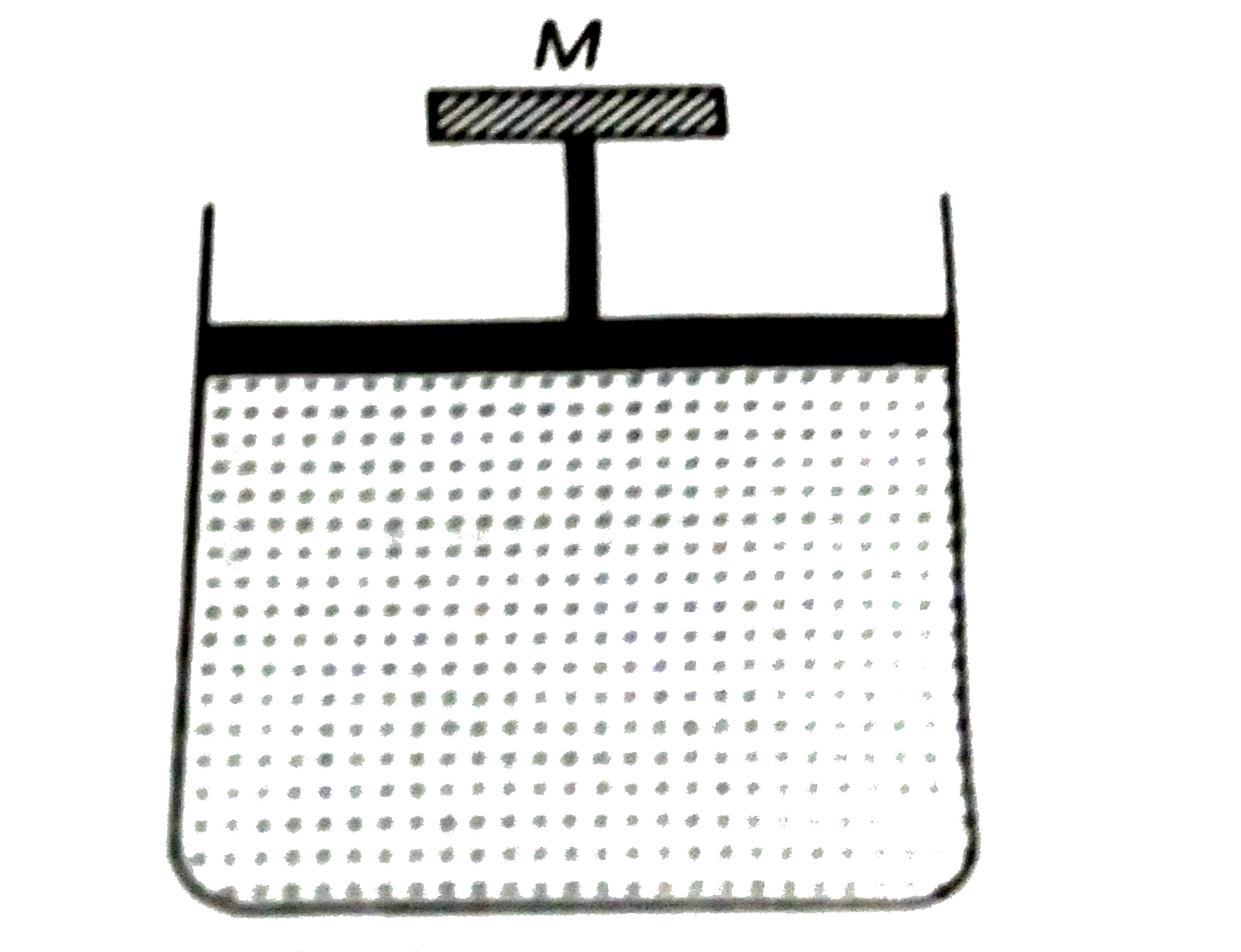
both p and v of the gas will change
only p will increase according to Charles' law
V will change but not p
p will change but not V
Consider the diagram where an ideal gas is contained in a cylinder, having a piston of mass M. Friction is absent.
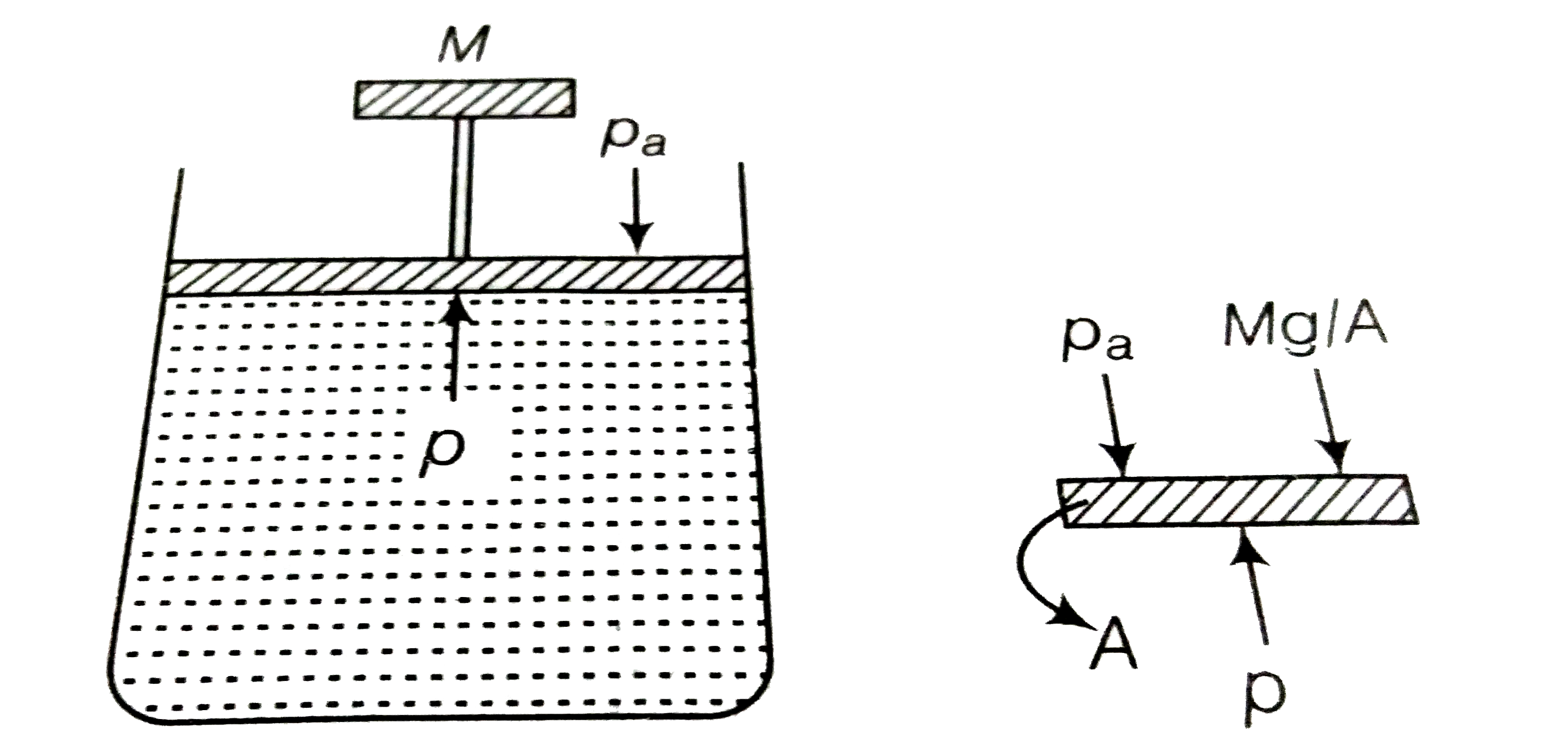
the pressure inside the gas will be ltbr> p=pa+Mg/A
Where pa= atmospheric pressure
A= are of cross -section of the piston.
Hence, p = constant.
When temperature increases
as pV=nRT⇒ volume (V) increases at constant pressure.
Topper's Solved these Questions
Similar Questions
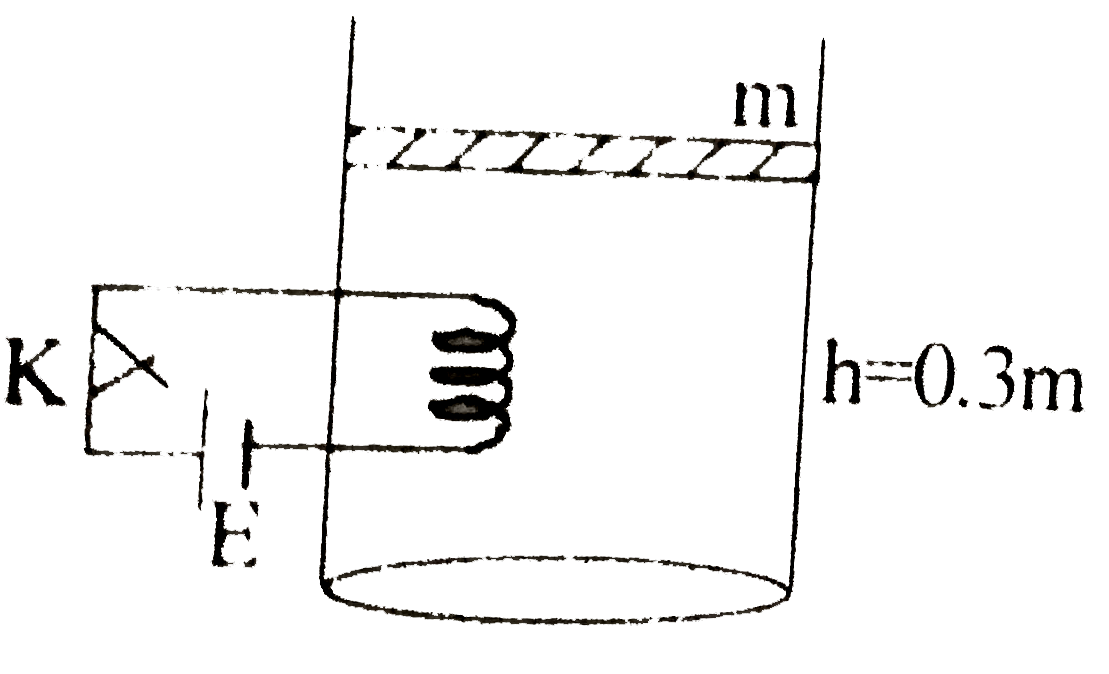
An insulated cylinder contains nitrogen gas which is sealed on the top by a heavy metal piston of mass m. piston is free to move with negligible friction, initial height of the piston is 0.3 m at temperature 27∘C when it is givenn some heat with the help of an electrical circuit piston slowly rises to height 0.5 m above the bottom of the cylinder. During expansion of te gas, net heat absorbed by the nitrogen gas:View SolutionA closed box contains an ideal gas if temperature of gas increased which
View SolutionA conducting container containing an ideal gas (He) is kept in ice-water mixture for long time. Now the piston is suddenly moved up so that its volume becomes eight times. Final temperature of gas will be:
View SolutionA resistance coil, connected to an external battery is placed inside an adiabatic cylinder filled with frictionless piston of mass m and containing an ideal gas. A current i flows through the coil, which has resistance R. The speed with which the piston must move in order to keep the temperature of the gas constant will be
 View Solution
View SolutionThe fixed non-conducting cylinder shown in figure has a noconducting heavy piston of mass M that can slide without friction. The area of piston is S and the cylinder is filled with an ideal gas (λ=1.5) with an initial volume V and an initial pressure P. Assume that the outside pressure on the piston is zero (vaccum). (Neglect acceleration due to gravity).
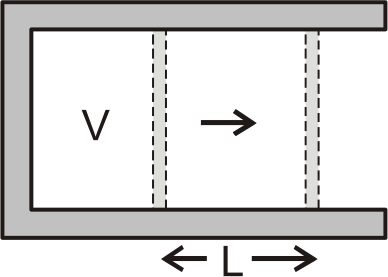
For the temperature of the gas to drop to one half of its original value. the piston will have to move by a distance:View SolutionThe fixed non-conducting cylinder shown in figure has a noconducting heavy piston of mass M that can slide without friction. The area of piston is S and the cylinder is filled with an ideal gas (λ=1.5) with an initial volume V and an initial pressure P. Assume that the outside pressure on the piston is zero (vaccum). (Neglect acceleration due to gravity).
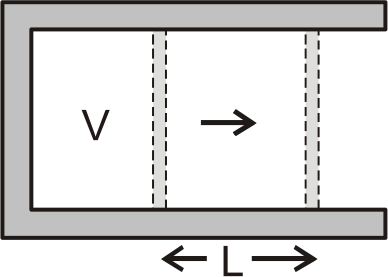
After the piston has moved by distance S. Its velocity is:View SolutionThe fixed non-conducting cylinder shown in figure has a noconducting heavy piston of mass M that can slide without friction. The area of piston is S and the cylinder is filled with an ideal gas (λ=1.5) with an initial volume V and an initial pressure P. Assume that the outside pressure on the piston is zero (vaccum). (Neglect acceleration due to gravity).
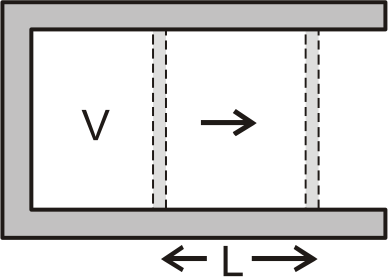
The initial acceleration of piston is:View SolutionIf →a and →b are two unit vectors and θ is the angle between them, then the unit vector along the angular bisector of →a and →b will be given by
View SolutionFigure shows initial state of an ideal gas trapped in a container with conducting walls and a piston (mass m) which can move without any friction. The container is placed on point supports and its wall are conducting. Assuming that atmospheric pressure is P0 and the mass of the ideal gas is negligible as compared to the mass of the piston and the mass of container. Take the cross section area of piston to be A. The piston is slowly lifted by an external agent and held in its position. Let M be the maximum mass of container so that it may "lift off" while pulling the piston upwards and Pi be the pressure of ideal gas in initial state. Pick the correct choice:
 View Solution
View SolutionA cylinder fitted with a piston contains an ideal monoatomic gas at a temperature of 400K. The piston is held fixed while heat ΔQ is given to the gas, it is found the temperature of the gas has increased by 20K. In an isobaric process the same ΔQ heat is supplied slowely to it. Find the change in temperature in the second process?
View Solution

